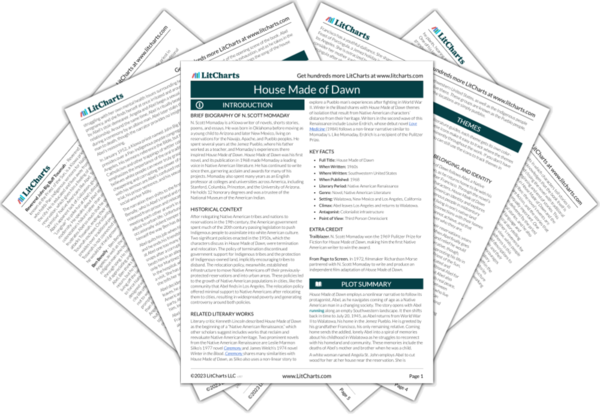Though Father Olguin, a man of the church, is Angela’s primary contact in Walatowa, she sets out to explore the pueblo’s native religion. After witnessing the devotion of ceremonial dancers in Cochiti (another New Mexico pueblo), Angela has become convinced that the Pueblo religions allow people to see past the trappings of physical reality. As Angela considers Abel’s spirituality, she reaffirms her desire to control and sexually dominate him.
